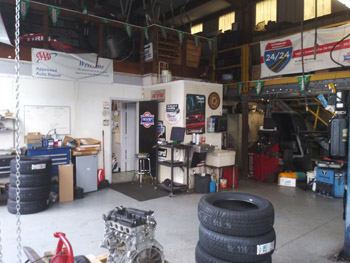All Categories
Featured
Preserving your cars and truck is crucial for ensuring its performance, safety, and longevity. Despite best objectives, many cars and truck owners make maintenance blunders that can lead to expensive repair services or malfunctions. Whether you're a skilled driver or a new cars and truck owner, bearing in mind these typical blunders can save you time, money, and anxiety over time.
- Skipping Regular Oil Modifications
Among one of the most vital and typically ignored maintenance jobs is changing your car's oil. Engine oil lubricates your vehicle's engine, maintaining it great and lowering rubbing. In time, oil becomes dirty and sheds its performance. Avoiding oil modifications or waiting too long in between them can result in engine damages and bad efficiency. The majority of autos require an oil adjustment every 3,000 to 5,000 miles, though some newer designs might enable longer periods. Constantly follow your maker's guidelines for oil modification frequency, and maintain an eye on oil levels to avoid major damage.
- Not Replacing Damaged Brake Pads
Worn-out brake pads can considerably lower your braking capability, triggering your auto to take longer to stop. Positive brake maintenance helps protect against pricey repair services and ensures your safety and security on the road.
- Neglecting Tire Maintenance

Your tires are the only point of call with the road, so it's vital to maintain them in great condition. Many vehicle drivers make the error of ignoring tire upkeep up until they experience a level or blowout. Not examining tire pressure on a regular basis is among one of the most common errors. Underinflated tires can cause inadequate gas performance, uneven wear, and also unsafe blowouts, while overinflated tires lower grip. On a regular basis examining tire pressure (a minimum of once a month) and ensuring your tires are properly pumped up can help prolong their life expectancy and improve your car's handling.
- Postponing Timing Belt Replacement
The timing belt plays a crucial duty in maintaining the engine's internal elements operating in sync. If the timing belt breaks or slips, it can trigger significant engine damages that could lead to costly repair services. Lots of automobile owners neglect the recommended timing belt replacement routine, which can lead to catastrophic engine failing. Typically, timing belts need to be changed every 60,000 to 100,000 miles, relying on the vehicle's make and design. Be sure to follow your cars and truck maker's referrals and replace the timing belt in a timely manner to stay clear of major engine troubles.
- Stopping Working to Screen Fluid Degrees
Your auto's various fluid systems, including coolant, transmission liquid, and brake fluid, all require to be kept for your cars and truck to run effectively. Maintaining these essential fluids topped up guarantees your car runs smoothly and avoids avoidable damages.
- Ignoring the Air Filter
The air filter is in charge of guaranteeing that tidy air streams into your engine, which is vital for its efficiency. A stopped up air filter can minimize gas effectiveness, decrease engine power, and rise harmful discharges. Numerous vehicle owners fail to remember to replace the air filter until it's also late, however it is very important to replace it consistently-- every 12,000 to 15,000 miles or even more, depending on driving problems. If you frequently drive in messy or contaminated locations, you might need to change the air filter extra regularly. A tidy air filter will aid your cars and truck run more effectively and save money on fuel.
- Not Resolving Warning Lights
Many contemporary automobiles are furnished with dashboard warning lights that signal you to possible concerns, such as reduced tire stress, engine problem, or oil troubles. Overlooking these lights or hoping the trouble will fix itself is a major mistake. Putting things off on repair work can bring about a lot more severe troubles and costly repairs later on. If any type of warning lights appear on your control panel, it's finest to deal with the issue immediately. Even if the auto appears to be running fine, those advising lights are there for a factor.
Conclusion: Precautionary Upkeep Saves You Cash
Preventing common car upkeep errors is vital for the health and wellness of your vehicle and your pocketbook. Do not wait for an issue to develop-- remain on top of your automobile's maintenance and address any type of concerns early on.
Latest Posts
Uncover Reduce Expenses on Car Maintenance with Montclare Auto Repair’s Special Deals
Explore Your Wyoming Banking Partner – Your Path to Superior Financial Services in Wyoming
Discover Your Financial Partner at WyHy – Key Advantages for Your Future
More
Latest Posts
Uncover Reduce Expenses on Car Maintenance with Montclare Auto Repair’s Special Deals
Explore Your Wyoming Banking Partner – Your Path to Superior Financial Services in Wyoming
Discover Your Financial Partner at WyHy – Key Advantages for Your Future